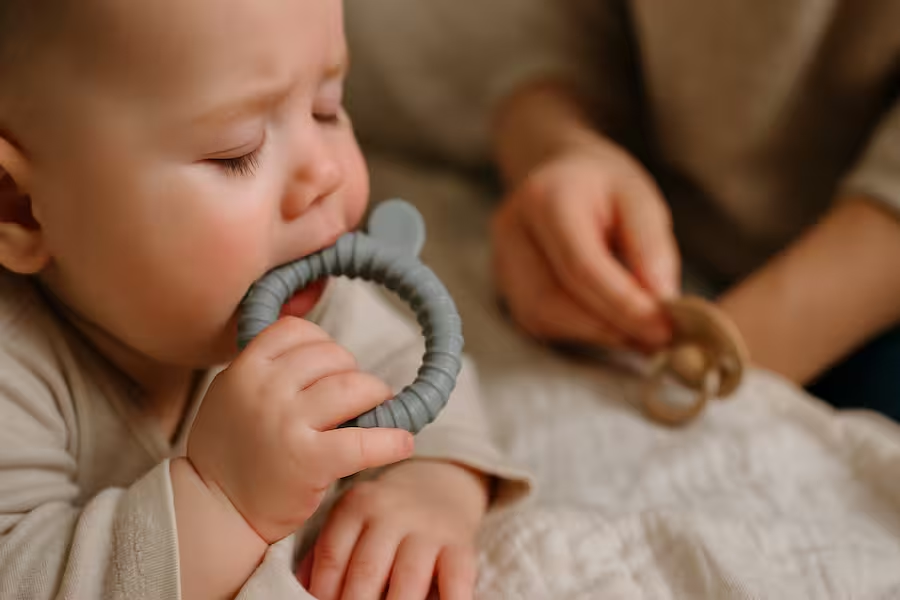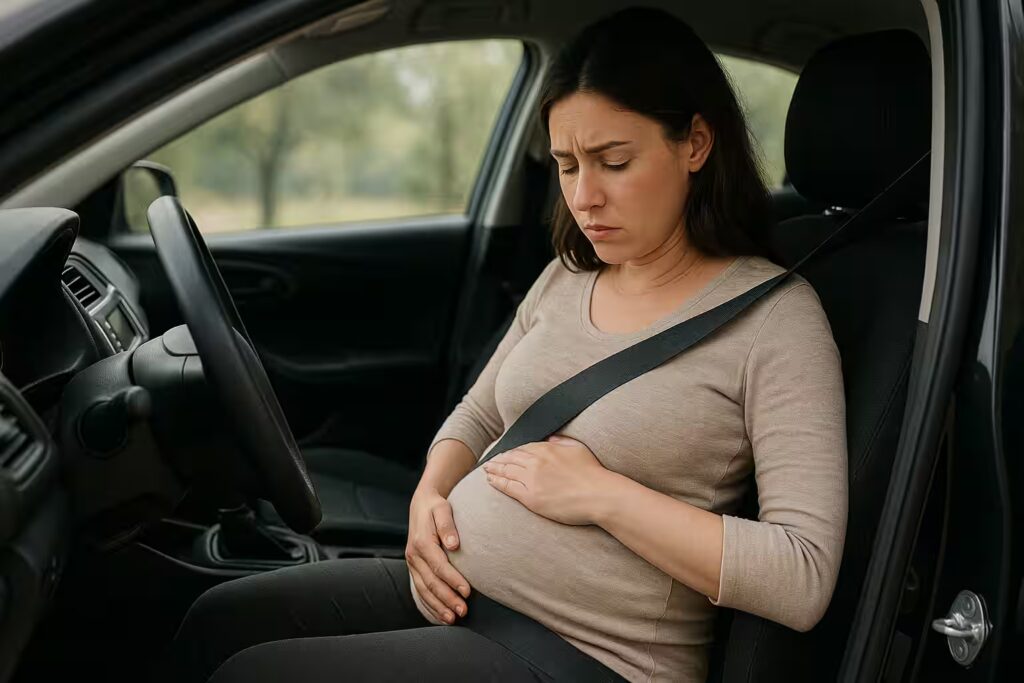Teething & Fevers – Myths vs. Facts

Is your baby burning up or just cutting teeth? Here's what you need to know.
It was 2:07am and I was googling “can teething cause fever” while rocking a clingy, red-cheeked baby who felt like a human hot water bottle. If that sounds familiar, you’re definitely not alone. The teething-fever confusion is one of those things that can send already-tired parents straight into a spiral. So let’s clear it up. No fluff. Just facts you can actually use.
Can Teething Cause a Fever?
Myth: Teething causes high fevers.
Fact: According to the Australian Government’s Raising Children Network and most paediatricians, teething might cause a tiny temperature bump, but not an actual fever (anything 38°C or over).
If your baby’s running a proper fever, there’s likely something else going on. Think virus, cold, or maybe an ear infection. Either way, don’t chalk it up to teeth and move on. Always worth a closer look.
Common Teething Symptoms vs. Signs of Illness
Here’s what’s normal when teeth are on the move:
- Drooling like a tap that won’t turn off
- Gnawing on anything within reach (remote included)
- Bit of grizzling or crankiness
- Rash around the mouth or chin from drool
- Slight temp increase, but still under 38°C
And here’s what’s not normal:
- Fever of 38°C or higher
- Diarrhoea or vomiting
- Refusing feeds for more than a few hours
- Extreme irritability or sleepiness
- Rash that spreads beyond the drool zone
If you’re seeing any of the second list, don’t play the “maybe it’s just teething” card. Call your GP or health nurse for a chat.
Why the Confusion?
Teething kicks off around 6–10 months. Know what else starts then? Catching every bug going. Your baby’s immunity from birth fades, and they start licking everything from toys to the dog bowl. Timing-wise, it’s a perfect storm.
Also, every second person will swear their kid “always got fevers with teething.” But research says otherwise. It’s not teeth causing the fever, it’s just that everything’s happening at once. Frustrating, but true.
Is Drooling and Fussiness a Sign of Teething?
Short answer: Often, yes.
Longer answer: Babies drool and whinge for all sorts of reasons. Teething is one, sure. But so is tiredness, boredom, hunger, or just needing to be held. If a chilled teether helps, great. If not, they might need something else (like a nap or a cuddle… or both).
When to Worry: Teething vs. Something More Serious
Time to call the doctor if:
- That temp hits over 38°C
- There’s a rash that’s not from drool
- They’re off their feeds or barely drinking
- They’re floppy, really unsettled, or just “not right”
Go with your gut. No one hands out medals for waiting it out if you’re freaking out inside.

How to Help a Teething Baby (Without Panicking)
- Hand them a cold, safe teether
- Rub their gums with a clean finger
- Ask your pharmacist or GP about pain relief (paracetamol or ibuprofen for the win)
- Load on the cuddles. Seriously, they help more than you think
Q&A Section: What New Moms Are Googling
Can teething cause a high fever?
Nope. Experts say a mild temp maybe, but 38°C or more means something else is brewing.
How long does teething fever last?
If there’s a tiny temp rise, it should only last a day or two. Any longer, check in with your doctor.
Is diarrhoea a teething symptom?
Nope again. It’s a common myth. If your baby has diarrhoea, it’s more likely a bug.
How do I soothe a teething baby at night?
Try a cold teether, gum massage, extra cuddles, and if needed, pain relief approved by your healthcare pro.
Final Word: Trust Yourself
Teething is tough, yes. But it shouldn’t make your baby really sick. If your little one’s got a proper fever, dodgy nappies, or seems totally off, it’s time to check in with a doctor.
You don’t have to play baby detective at 3am. You’re doing your best and that’s more than enough.
Ever thought your baby had a “teething fever” that turned out to be something else? Share your story below, and as always, feel free to post in our forums if you need help or assistance at any time.






Responses